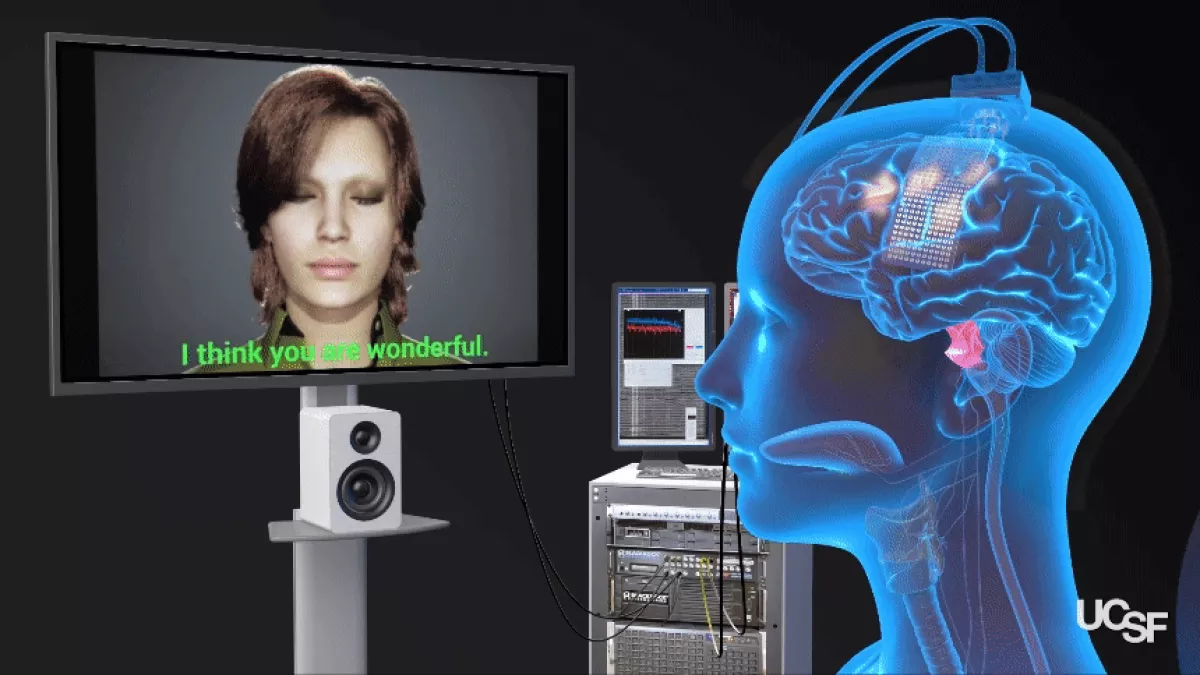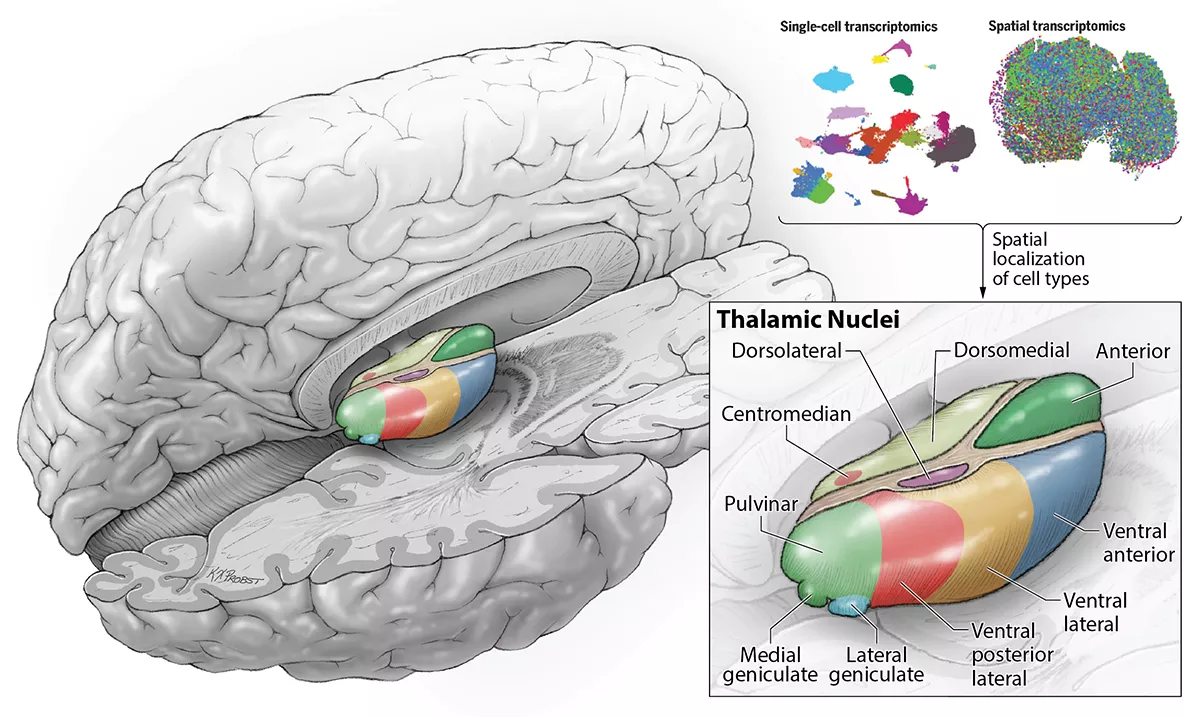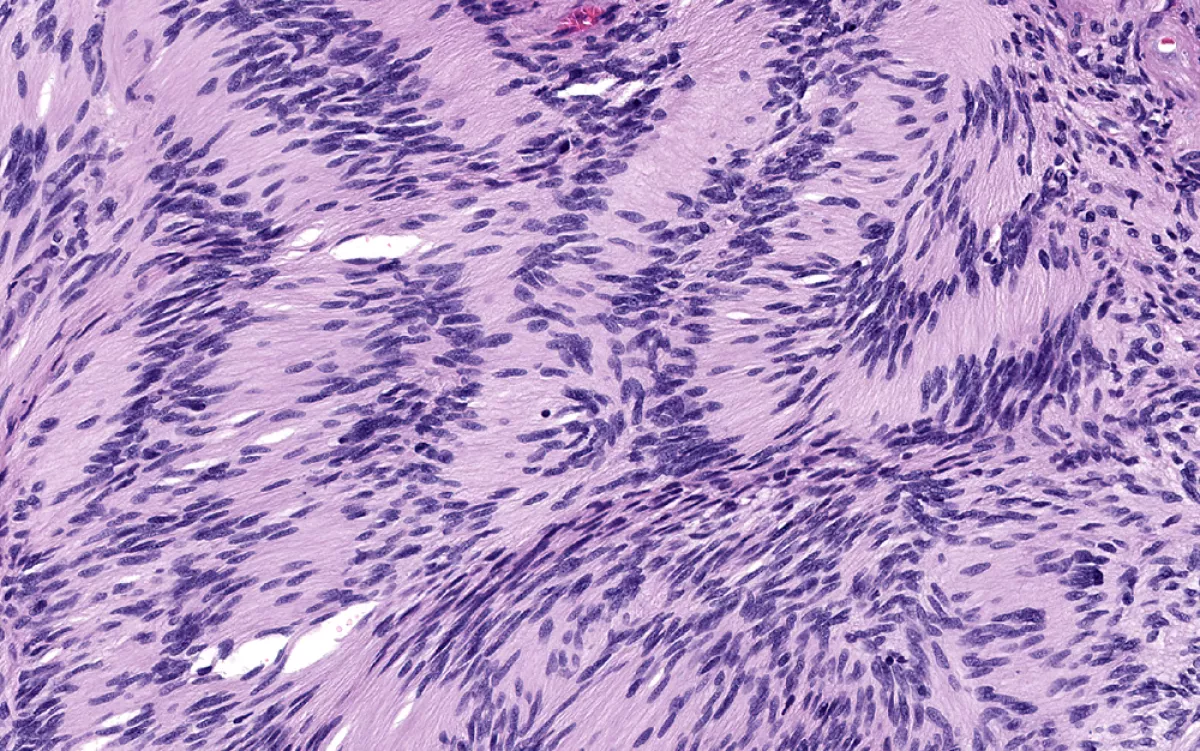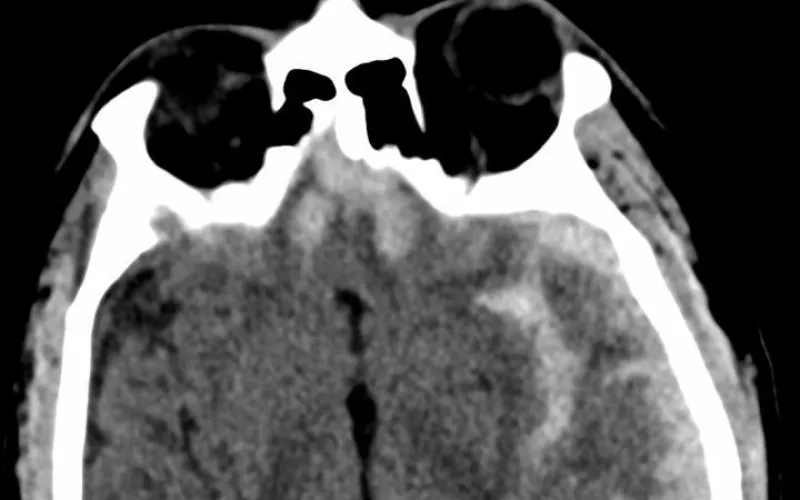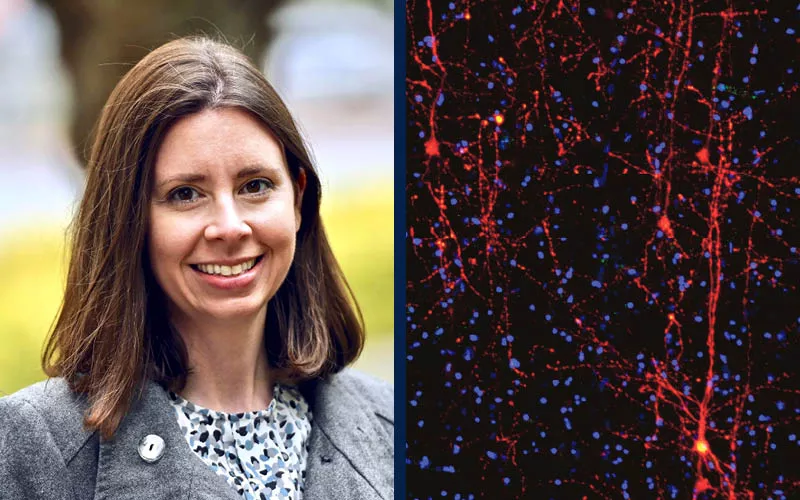UCSF Ranks No. 2 Nationwide for Neurology & Neurosurgery in 2023-24
U.S. News & World Report ranked UCSF Medical Center as the No. 2 hospital nationwide for Neurology & Neurosurgery, marking four consecutive years of ranking among the top two programs in the country.
How Artificial Intelligence Gave a Paralyzed Woman Her Voice Back
Breakthrough brain implant and digital avatar allow stroke survivor to speak with facial expressions for the first time in 18 years.
Has Science Cracked the Code on Chronic Pain
In a first, UCSF researchers have identified chronic pain states in individuals directly from their neural activity.
Focused Ultrasound Calms Decades-Long Hand Tremor
After undergoing high-intensity focused ultrasound with neurosurgeon Doris Wang, MD, PhD, and neuroradiologist Leo Sugrue, MD, PhD, John Whitehead's tremors improved dramatically.
The Intricate Machinery of Human Speech
Recordings from hundreds of individual neurons provide a high-resolution picture of the neural mechanisms of communication.
The Radical Compassion of Awake Brain Surgery
On the operating table and inside the lab of a rising star in cancer neurosurgery.
Scientists Discover a Deadly Brain Cancer's Hidden Weakness
A UCSF study shows how gliomas integrate into neuronal networks to impair cognition and that a commonly used, cheap epilepsy drug stops tumor growth in mice.
Can Gene Expression Predict if a Brain Tumor is Likely to Grow Back?
New test could change treatment for 1 in 3 patients with meningioma.
Brain cell atlas reveals a “mosaic” of cells in the human thalamus
New study from the lab of Tomasz Nowakowski, PhD, offers first glimpse of how brain cells organize into more complex structures.
Aggressive Surgery Increases Survival with Low-Grade Brain Tumors
UCSF-Led Study Shows Extensive Resection Results in Longer Survival for Glioma Patients
Brain Tumor SPORE grant at UCSF Receives $12 Million Renewal from NCI
With a renewed Specialized Program of Research Excellence (SPORE) grant, the UC San Francisco Brain Tumor Center is receiving $12 million dollars over five years to translate scientific findings into improved care for people with brain tumors.
Three-level ACDF versus 3-level laminectomy and fusion: are there differences in outcomes? An analysis of the Quality Outcomes Database cervical spondylotic myelopathy cohort
Both anterior and posterior fusion approaches to treat multilevel cervical spondylotic myelopathy (CSM) and have similar complication and safety profiles.
Advanced Care of Subdural Hematoma in the Elderly: A Look at Embolization
Neurosurgeon Luis Savastano, MD, PhD, discusses middle meningeal artery embolization, a minimally invasive, outpatient procedure for subdural hematoma that decreases the likelihood of recurrence.
PP2Ac Deficiency Enhances Tumor Immunogenecity by Activitating STING-Type I Interfon Signaling in Glioblastoma
A UCSF study describes the role of PP2A in regulating glioma immunogenicity.
Art as Brain Tumor Therapy
New art exhibit showcases work from patients with a brain tumor.
Surgical Treatment Options for Brain Aneurysms
Neurosurgeon Ethan Winkler, MD, PhD, explains the decision-making process for the different treatment options.
Novel SOX10 Indel Mutations Drive Schwannomas Through Impaired Transactivation of Myleination Gene Programs
In this episode of The Neuro-Oncology Podcast, David Solomon, MD, PhD, appeared as a guest to talk about his lab’s latest findings on molecular underpinning of schwannomas.
Socioeconomic differences between medically and surgically treated prolactinoma: a retrospective review of 598 patients
A study from the California Center for Pituitary Disorders at UCSF identifies socioeconomic disparities in patients with prolactinoma.
Big, Small, Flat, Triangular: Understanding Abnormal Head Shapes in Infants
In this webinar, pediatric neurosurgeon Winson Ho, MD, discusses abnormal head shape in infants and treatment options.
The “Canopy Approach”: Case Series Using Immersive Virtual Reality for Bottom-Up Target-Based Preoperative Planning in Pediatric Neurosurgery
VR technology helps pediatric neurosurgeons plan the best route for surgery and improves how families understand the procedure.
Praveen Mummaneni Elected to American Board of Neurological Surgery's Board of Directors
In his role at ABNS, Mummaneni will help in advancing the standards for neurosurgical research and patient care.
Longitudinal Recovery Following Repetitive Traumatic Brain Injury
TRACK-TBI researchers show that repetitive injury is assoicated with worse recovery.
Cathryn Cadwell Receives Grant Through NIH BRAIN Initiative
IBRAIN CONNECTS funds new advanced approaches to study brain circuits.
To the Rescue: Head Doctor Uses Foam Helmets to Round Kids’ Heads
UCSF Benioff Oakland Hospital craniofacial clinic is one of the only hospitals nationally to offer onsite helmet measurement and adjustment services alongside neurosurgery.
Epigenetic Age Biomarkers and Risk Assessment in Adult Spinal Deformity: A Novel Association of Biological Age with Frailty and Disability
Neurosurgeon Chris Ames, MD, and his colleagues show that measures of biological age, including epigenetic clocks and telemore length, could be used to improve surgical risk assessments.
Minimally invasive versus open transforaminal lumbar interbody fusion for grade I lumbar spondylolisthesis: 5-year follow-up from the prospective multicenter Quality Outcomes Database registry
Neurosurgeon Praveen Mummaneni, MD, and his team found no difference in the 5-year outcomes between minimally invasive transforaminal lumbar interbody fusion (TLIF) versus traditional open TLIF in patients with lumbar spondylolisthesis.


